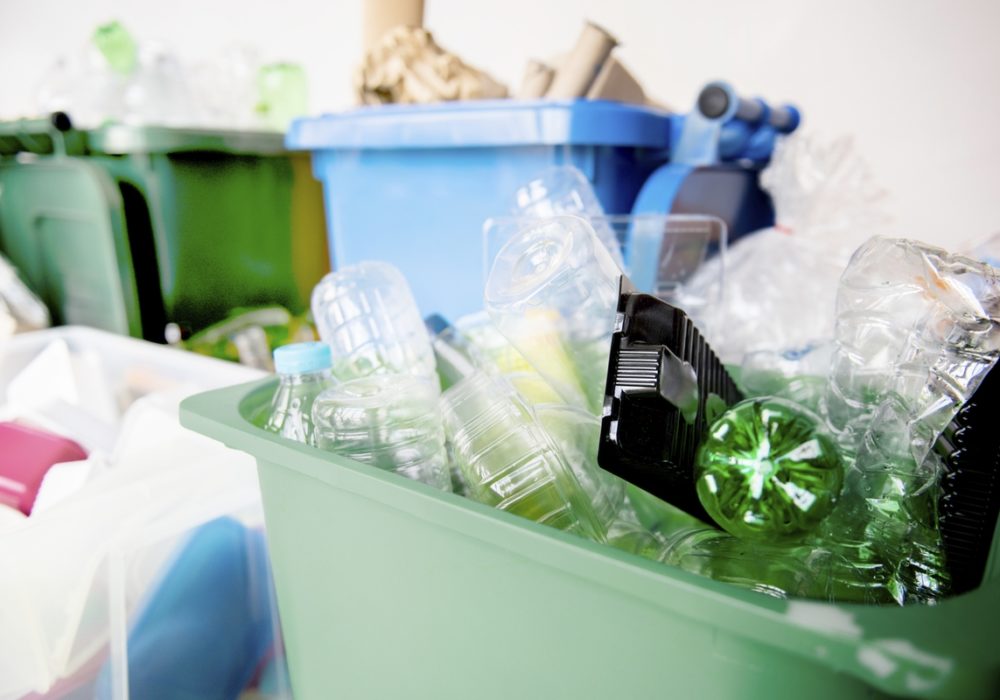
It’s a little late in the game and we’re playing catch-up…
At a macro scale, data from the World Economic Forum (WEF) serves well for illustrating the mountain that needs to be climbed if we are to address the problem of waste management.
In 2019, the ‘take-make-dispose’ approach to production and consumption, saw over 92 billion tonnes of materials extracted and processed, contributing to about half of global CO2 emissions.
Despite the pressing nature of the climate emergency, the UK is falling behind in its efforts to recycle more. Looking at the home nations as a whole, finalised Defra figures for 2020 have revealed a 1.6 percent fall in the household recycling rate from the previous year to 44.4%, with Scotland bringing up the rear in fourth place.
While this may be disheartening news for LA environmental services directorates and the environmental lobby in general, some of this decline is a distortion of the true picture, due to the effects of Covid, when many household waste recycling centres were closed, and green waste collection services were disrupted.
But looking forward, action north of the border is set to give our environmental efforts an enormous boost as Scotland intends to go live with its deposit return scheme (DRS) in 2023. This chimes exactly with what we wrote in the blog ‘Strategic initiatives needed to further the cause of recycling’ in January…!
The DRS, run by Circularity Scotland, is built on the premise that a drinks container carries a refundable deposit of 20p and is set to see billions of containers recycled.
According to the WEF, the circular economy promotes the elimination of waste and the continual safe use of natural resources. It estimates that this approach offers an alternative to ‘take-make-dispose’ that can yield up to £3.6 trillion in economic benefits globally by 2030.
Everyone is a stakeholder
In light of the mounting evidence such as extreme weather events, rising sea levels, the detrimental effects to flora and fauna, and the average global temperature rising, the scale of the problem means that everyone that inhabits the Earth is a stakeholder.
Last year, the results of the UN global climate poll, the biggest ever opinion poll on climate change, found two-thirds of people think climate change is a ‘global emergency’. In counties including Japan, Italy and the UK, that opinion was shared by four-fifths of survey respondents.
With so many agreeing we are in trouble, why are household recycling rates sub 50% in every area of the UK apart from Wales?
As the poll suggests awareness is high, then the next part of the effort to improve recycling rates is to focus on altering human behaviour – to turn awareness into recycling action. ‘Take-make-dispose’ is an entrenched group behaviour that we need to swiftly move away from by adopting the ‘5 Rs’ – ‘refuse, reduce, reuse, repurpose, and recycle’.
(To clarify homographic confusion, ‘refuse’ in this sense is not rubbish, it is the conscious decision to reject products that are unable to be put to further use by any of the other four ‘Rs’).
Another initiative for raising awareness of the scale of the plastic problem in the UK in May 2022 saw around 151,000 households, 96 MPs, and 4,180 classrooms tally up each piece of plastic they use over the course of a week.
However, we need to move beyond awareness. DRS incentivises positive action through financial reward. But it is impractical to financially incentivise every recycling activity. There is a fundamental need to snap people out of the routine of their entrenched behaviour. In short, there is a need for education and easy access to information.
Patchwork of recycling capability leads to confusion
Knowing the scale of the problem is one thing. Telling people what and how is another matter. With differing recycling capabilities available in different local authority areas across the UK, there is a real need to tell people what is recyclable locally and the rules for them to perform their part of the process.
One of the easiest ways is to provide information to citizens by using their smartphones. Paper leaflets that are posted out have a habit of ending up in the waste bin (or hopefully, the recycling bin). However, does it get read; or is the information retained and put to use?
Improve recycling behaviour with the Whitespace Resident Mobile App
With more than half the population now using mobile devices to access the majority of the news and information they want, a mobile app is an ideal way to deliver essential recycling information.
The Whitespace Resident Mobile App is designed from the ground up to let councils communicate with citizens in the most appropriate way about environmental matters, and provide other official information and updates.
The app connects residents to their council’s web portal, enabling the delivery of recycling and waste collection information. This includes collection schedules, notification reminders to put bins out, access to local news and the ability to report issues like missed bins, graffiti and fly tipping.
Information can also be included to clarify what is recyclable and what is not in each local authority area, as well as the process for making materials recyclable, such as the need for washing containers, which prevents the rejection for reprocessing due to contamination.
Communicating like this helps to drive community action and encourages everyone to do their bit in the shared responsibility of waste management and arresting the environmental impacts of climate change.
To find out more about how the Whitespace Resident Mobile App helps local authorities communicate with citizens and drives community action on waste management, simply get in touch by calling us on +44 (0)1483 231 650 or emailing us at: info@whitespacews.com
